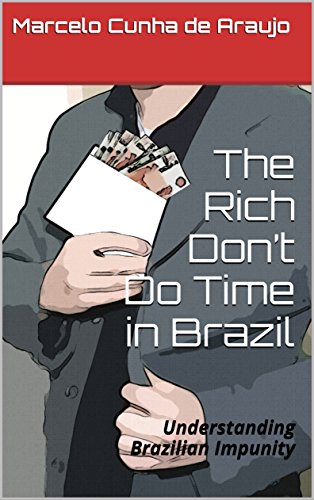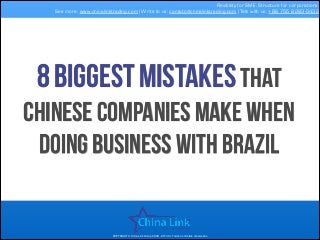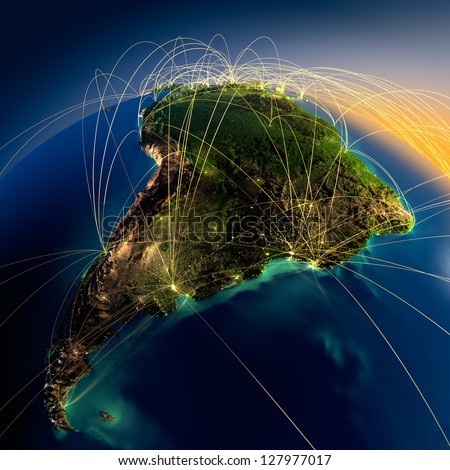
I have been following the development of Crowdfunding regulation in Brazil in recent years.
My view about it has been mostly pessimistic, as you can see at
Crowdfunding in Brazil - Someone thinks it is possible and also in the article below, which has been originally published at
Alternative Emerging Investor magazine.
However, Brazilian Secuirities & Exchange Comission (CVM) has finally called for a public round of debates, in order to discuss a draft regulation for equity crowdfunding in Brazil.
The call for contributions stresses the importance or equity crowdfunding for the development of tech companies and also highlights its use as an alternative source of financing, that is welcome at a moment when Brazilian basic interest rate is at 14,15% per year.
The regulation is a bit harsh, in my opinion.
On the bright side, it has dismissed the need for previous registration of each crowdfunding opportunity with CVM. However, it will demand previous registration of the investment platforms with CVM (as if the websites and platforms were financial companies or small banks).
Other than this initial setback, the regulation seems pro-business. It will apply to crowdfunding rules similar to the simplified rules applicable to public offers by small companies.
The main points of the proposal are:
a) the company receiving the investment must be a limited liability company (Ltda);
b) the maximum gross revenue of the company will be 10 million reais (~3 million USD);
c) maximum value to be obtained through a crowdfunding campaing is 5 million reais (~1,5 million USD);
d) each individual can invest a maximum of 10 thousand reais (or 3 thousand USD) per year, but exceptions are made to qualified investors;
e) a full business plan, including details such as the fee that is being paid to the investment platform;
f) there are provisions allowing for syndicated investment by professional groups.
I will follow this topic and post further developments here.
Meanwhile, if you can read Portuguese, please check the proposed regulation
here.
For an overview of what the market is at the moment (that is, before the new rules come to force), please read the article below.
Crowd funding still not a replacement for private
equity in Brazil
Brazil has a modest crowd funding scene, with less
than a dozen famous websites in the area. The amounts those websites are
capable to process is estimated in less than a couple million dollars per year.
Like anywhere else in the world, Brazilian crowd funding
operations are focused in a few basic areas: artistic events, including movies;
innovative business ventures (often related to technology and internet) and
nonprofit initiatives, usually humanitarian in nature.
In a sense, a crowd funding website works as a mini
stock exchange: entrepreneurs will present their projects, and the website will
act as a broker between the new venture and many possible investors or
supporters.
The operation is not identical to an IPO, however. It
is common for companies looking for crowd funding to offer benefits that are
not related to equity or profits. For example: absolutely nothing (in case of
humanitarian initiatives); the chance to obtain a small part in a future movie;
one or two units of the product that the company plans to develop.
Problem is: according to Brazilian law, the similarity
with a regular public offer is too stark to disregard, which may trigger the
application of several rules governing capital and financial markets.
This article will make a brief overview of the risks
crowd funding websites face in Brazil, especially those dealing on the funding
of new business ventures (as opposed to cultural and humanitarian projects).
Background: Brazil is scarred when it comes to public
saving and capital markets
Brazil has suffered heavily from lack of capital
pools, extremely high inflation and currency devaluation during the nineteen
hundreds.
A series of misfortunes has left a mark on Brazilian
capital market rules and regulations, many of them drafted during the
dictatorship era, notably 1960-1970.
In spite of moderate advancements in the last 20
years, Brazilian financial system is clearly out of sync with recent
developments such as crowd funding.
Public offers and the Brazilian Stock Exchange Commission
(CVM)
Brazilian law n. 6.385, from 1976,
regulates the stock markets. It defines public offers in a rather broad way,
describing all usual financial instruments (bonds, equity, and preferential
shares) and including a general description of “any other bonds, or collective
investment arrangements, when offered to the public”.
It is widely recognized that any public
offer that is related to any kind of return on invested capital is potentially
regulated by Law. N. 6.385.
The same rules
also describes that the Brazilian securities market shall be operated by a
limited number of participants. Among them stock exchanges (such as Bovespa)
and financial institutions, including banks and stock brokers.
Basically, all
financial institutions are regulated by Law n. 4.595 from 1964 (as well as by
many other legal rules), which requires them to obtain previous approval by the
Brazilian Central Bank, before starting operations.
In consequence,
there is no way an independent entity, such as a small website, would be able
to publicly trade or offer securities without being previously registered with
the Brazilian Central Bank.
Finally,
normative instruction n. 400, from 2003, issued by the Brazilian Comissão de
Valores Mobiliários - CVM (our Stock Exchange Commission) demands that any
public offer be previously registered with CVM.
Therefore, it
is clear that only a financial institution, formally approved by the Brazilian
Central Bank, may request CVM’s approval in order to, finally, be able to make
public offers.
The protection of public savings by
the prohibition of raffles similar practices
The route described above may seem a little
disheartening.
However, let’s not forget that one of the crow funding
modalities does not deal specifically with equity in the new ventures, but with
the purchase of products that will be developed in the future.
Unfortunately, this path also does not offer any
shelter to crowd funding websites. Brazilian law n. 5.768, from 1971, regulates
the public placement of raffles or similar gambling competitions that are
offered to the public.
The law says that any raffle or similar scheme that is
publicly offered and that involves previous collection of payment by a large
pool of consumers must be previously approved by the government.
Penal
sanctions
The practice of business or operations that are
restricted to financial institutions is a crime in Brazil, as per law n. 7.492
from 1986.
Also, the company’s directors may be held responsible
for such behaviors.
Options for crowd funding web
sites.
Since it seems that usual crowd funding web sites are
not allowed to operate in Brazil, at least not in the traditional way, one must
inquiry if there are any legal options for such ventures in Brazil.
One option that comes to mind is to establish them as
not for profit organizations that organize raffles. This is because law n.
5.768 does not prohibit the organization of raffles and similar competitions by
churches, humanitarian organizations and other institutions that serve the
public. Such institutions must obtain a previous declaration of public utility
before being able to enjoy this benefit.
A second option would be to organized crowd funding
websites merely as intermediaries of donations made from the public to a
specific business venture. This arrangement is not ideal, though, because it
would eliminate the possibility of equity ownership in the company. The donors
would, at maximum, be entitled to a small gift from the company, in exchange
for their donation.
A third option is for Brazilian crowd funding sites to
be located abroad, in countries where the regulation of such small scale
investments is less restricted. After the funds are acquired, the total amount
could be invested in Brazil as foreign direct investment. This option, as all
others, is also not perfect. The remittance of money abroad is difficult for
the average Brazilian citizen, for example. Also, this kind of operation would
allow only the ownership of equity in the future company, not the purchase of
future products.
We hope Brazilian regulation evolves to catch up with
modern ways of funding new ventures. Before that, crowd funding in Brazil
remains a gray area, with a lot of risks associated to it.
--------------------------------------------------
NOTE: This article was published before August 2016, when Brazilian Stock & Exchange commission started regulation of equity crowdfunding. Please see the beggining of the post for updated information.
 The Rich Don't Do Time in Brazil: Understanding Brazilian Impunity (English Edition) - eBooks em Inglês na Amazon.com.br:
The Rich Don't Do Time in Brazil: Understanding Brazilian Impunity (English Edition) - eBooks em Inglês na Amazon.com.br: 






